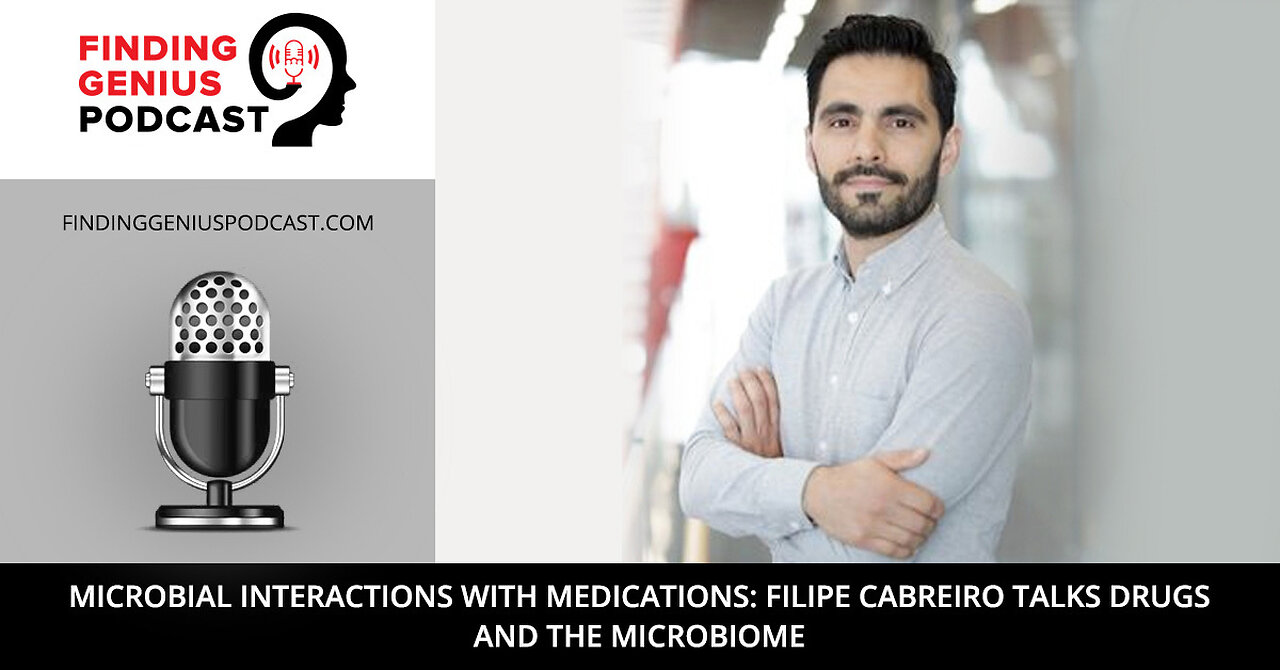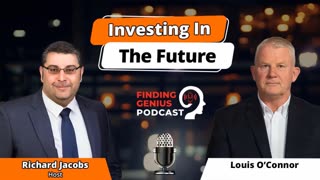Premium Only Content

Microbial Interactions with Medications Filipe Cabreiro Talks Drugs and the Microbiome
Filipe Cabrerio researches how a host’s microbiome and physiology interact in the context of different conditions such as aging and metabolic syndrome while taking various medications.
He shares some his lab’s research with listeners, explaining
1) What they found when studying colorectal cancer drugs and microbial metabolism,
2) How metformin interacts with microbial physiologies to alter metabolic syndrome, and
3) What future studies he hopes to instigate involving the vast genetic diversity in some of these microbes, even within the same species, and medical impactions for treatment.
Filipe Cabreiro holds a Sir Henry Dale Fellowship in the London Institute of Medical Sciences at the Imperial College of London. His lab works to understand how the microbiome interacts with a host’s physiology—how the microbes that one produces interact with others, especially when both are challenged by daily medications taken to deal with disease and in the conditions of aging.
The lab recently made an important discovery in the context of cancer drugs: they found that classic drugs for colorectal cancer were modified by microbial metabolism that reduced or amplified the action of the drugs. Further, they found that certain components of food could change that response.
He also discusses a study on metformin, a drug taken for type 2 diabetes, and its interaction with the microbiome. They found that nutrients, the host’s microbiome, and the drug interact in an important way. Metformin makes selective pressures on certain gut microbes, which translates into longer lasting change associated with positive effects. They think metformin pushes for certain conditions that allow some healthful microbes to survive and also pushes strong metabolic change.
The consequences of that change is the production of molecules such as fatty acids and others that can actively regulate the host’s physiology and metabolism. He explains the nature of this interaction and the significance in more detail along with challenges to these kinds of studies, further hypotheses, and future research he hopes to take on.
For more, see his lab’s web page: cabreirolab.org.
Available on Apple Podcasts: apple.co/2Os0myK
-
 25:57
25:57
FGP
1 day agoInvesting In The Future: Strategic Metals, Geopolitics, & Opportunity With Louis O’Connor
17 -
 LIVE
LIVE
The HotSeat
1 hour agoTrump Drops Hammer: Burn the Flag = 1 Year Prison! Army Deployment Next?!
875 watching -
 LIVE
LIVE
Jamie Kennedy
19 hours agoThe Truth About Anger, Race, & Feminine Energy w/ Jesse Lee Peterson | Ep 219 HTBITY
107 watching -
 1:45:39
1:45:39
The Quartering
6 hours agoMMA Fighter Tries To K*LL Wrestler, Hollywood PANIC & Sam Tripoli's Favorite Conspiracies
133K145 -
 1:05:04
1:05:04
Mark Kaye
4 hours ago🔴 Trump Sends Dems Into RAGE Over Flag Burning Executive Order
13.5K13 -
 LIVE
LIVE
Film Threat
18 hours agoVERSUS: AUGUST BOX OFFICE BLOOD BATH! MARVEL IS COOKED! | Film Threat Versus
122 watching -
![[Ep 734] Leftists Support of Black-on-Black Crime | Bolton Raid / Media Hypocrisy](https://1a-1791.com/video/fww1/0e/s8/1/a/F/p/c/aFpcz.0kob-small-Ep-734-Leftists-Support-of-.jpg) LIVE
LIVE
The Nunn Report - w/ Dan Nunn
1 hour ago[Ep 734] Leftists Support of Black-on-Black Crime | Bolton Raid / Media Hypocrisy
217 watching -
 29:39
29:39
Afshin Rattansi's Going Underground
1 day agoEx-Israeli PM Ehud Olmert: INTOLERABLE Amount of Innocent Palestinians Have Been Killed in Gaza
10K26 -
 7:49
7:49
Dr. Nick Zyrowski
6 months agoVitamin D is Dangerous? Get The TRUTH!
10.4K11 -
 1:03:48
1:03:48
daniellesmithab
3 hours agoExploring Nuclear Energy in Alberta
15.2K4